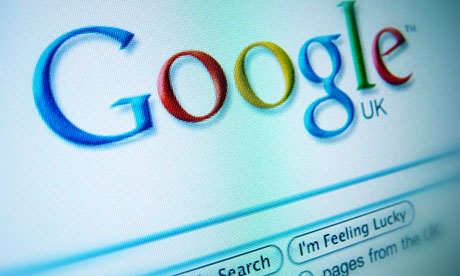
A tiny British shopping comparison site has triggered an investigation by the European Commission into whether Google is abusing its monopoly position by deliberately lowering rivals' sites in its search results.
The European Commission announced today that it will carry out an investigation into Google's business practices – the first such in the world and one certain to be watched with interest.
The case could take years to be decided but could lead to Google facing billions of euros in fines, and strict regulations about how it can lay out its search results, especially when they include its own services. Fines can reach 10% of revenue, which would amount to $2.4bn (£1.54bn) based on the company's 2009 earnings figures.
The investigation follows complaints by three companies – Foundem, a British price comparison site; Microsoft-owned Ciao; and the French legal search engine justice.fr – that links to their services appear too low on Google's general search results. They also noted that when Google offers similar services – such as online price comparison – it puts its own links higher on the sponsored search results that companies have to pay for.
"We're very pleased the commission has taken this important step, but we're not surprised," said Shivaun Raff, chief executive and co-founder of Bracknell-based Foundem. "European law says that if you have a dominant position in a market, you have a special responsibility to behave in a way that doesn't crush competition in the market."
Microsoft and Intel have already discovered that the commission takes a far harder line on abuse of monopoly than its US counterpart, the department of justice (DoJ): both have suffered fines of more than €1bn for monopoly practices in Europe, while in 2001 the DoJ relaxed a September 2000 ruling that Microsoft should be split up into two companies.
For Google, which has grown rapidly from a standing start in 1997, the commission's probe poses the first real challenge to its dominance in search, where it has up to 90% of searches in almost every market worldwide, except China and Russia.
Google responded robustly to the claims. "We built Google for users, not websites, and the nature of ranking is that some websites will be unhappy with where they rank. Those sites have complained and even sued us over the years, but in all cases there were compelling reasons why their sites were ranked poorly by our algorithms. For example, Foundem, one of the sites that has complained publicly and to the European Commission, duplicates 79% of its website content from other sites, and we have consistently informed webmasters that our algorithms disadvantage duplicate sites."
Raff insisted that Google is leveraging its power in search to boost the position of its other properties, such as maps and video, which would constitute a potentially illegal abuse of dominance in one field to gain share in another.
However, American commentators backed Google. Danny Sullivan, of the analysis company Search Engine Land, said that the complaint about favouritism made no sense.
"Google is a search engine," Sullivan said. "A search engine's job is to point you to destination sites that have the information you are seeking, not to send you to other search engines. Getting upset that Google doesn't point to other search engines is like getting upset that the New York Times doesn't simply have headlines followed by a single paragraph of text that says 'read about this story in the Wall Street Journal'."
Joseph Lampel, professor of strategy and innovation at Cass Business School, suggested that the investigation was "probably inevitable" after the EC's examination of Microsoft: "Any company so dominant in a sector is always going to face criticisms from some of the smaller players. However, the case against Google is much more technically subtle than the Microsoft investigation. It is the equivalant of a retailer having 70% of the UK market and displaying its own branded goods on eye-level shelves while relegating other brands to lower shelves where they are less likely to be noticed by consumers."
Raff suggested that the case could open the door to a DoJ investigation in due course. "We have spoken to the DoJ in spring this year in Washington," she said. "They were very interested." The EC has notified the US department of justice of its investigation, which is likely to take "at least a few months".
Meanwhile, Google is reportedly in talks to buy Groupon, an online discount service, in a deal worth up to $6bn according to reports in the New York Times and the Wall Street Journal's All Things Daily blog. The price would be twice as high as its previous largest, of the advertising system DoubleClick in 2008 for $3.2bn.
Groupon, a two-year-old startup based in Chicago, offers daily local bargains ranging from yoga classes to discounts from national retailers. Neither company has commented on the rumours, which began circulating at the weekend. The deal would reportedly include $5.3bn in cash and $700m in earnout payments. Google is thought to want Groupon for its strong local connections, which would strengthen its ability to target adverts to locations.

No hay comentarios:
Publicar un comentario